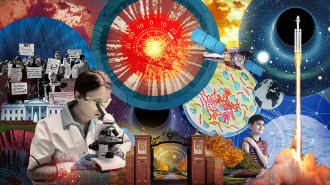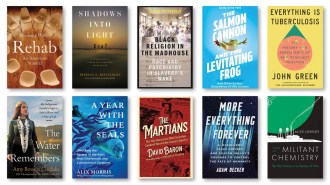‘Three-parent babies’ are ethically permissible, U.S. panel says
- More than 2 years ago
It is ethically permissible to create “three-parent babies” in clinical experiments, as long as certain guidelines are followed, a U.S. panel of experts has concluded.
These babies result from a procedure known as mitochondrial replacement therapy, mitochondrial transfer or three-person IVF. The technique aims to prevent rare genetic diseases that cripple energy-producing mitochondria from being passed from a mother to her child.
Mitochondrial transfer is already legal in the United Kingdom. But the U.S. Food and Drug Administration requested that a panel convened by the Institute of Medicine investigate whether ethical considerations should prevent clinical studies in the United States.
For the procedure, researchers extract and discard the nucleus of a donor egg containing healthy mitochondria and then insert the nucleus from a mother’s egg. Sperm from the father fertilizes the egg, creating an embryo in which the bulk of the genetic information come from the mother and father, but a small amount of DNA comes from the donor’s mitochondria.
In a report issued February 3, and summarized in the journal Science, the IOM panel concludes that it is ethical to conduct the experiments, but recommends limiting the technique to making baby boys. That would prevent “germline modification” of future generations because mitochondria are usually inherited from the mother. The committee also recommends the technique be limited to women with serious mitochondrial diseases, and that regulators should take the mother’s health and the expertise of the scientists into account before approving studies.
The FDA must now decide whether to allow the experiments to move forward.







